Frequently Asked Questions
TreesLouisville Questions
I am interested in volunteering. How do I sign up?
Click here to visit our Volunteer Opportunities page.
From this page, you can learn about the types of volunteers we need, how to join our organization as a volunteer, and how to sign up for opportunities.
You can also check to see if your employer offers volunteering incentives when you donate your time to TreesLouisville!
Where does TreesLouisville plant?
We will plant anywhere within Jefferson County, with a focus in areas that have lowest canopy coverage as identified in the 2022 UTC study. At this time, West, South, and Southwest Louisville are our highest priorities.
We tend to plant on large privately-owned land, such as schools, business complexes, places of worship, etc. However, we will also plant along rights-of-ways, or on residential land, and other government-owned property if the opportunity arises.
If you have a potential planting site and would like to submit a proposal, we would love to hear from you!
Do you accept donated trees/seedlings from my property?
We typically do not accept plant donations from private property. We purchase our trees through professional nurseries that grow trees to specific standards, and we order in large quantities. Therefore it’s difficult for us to accept donations of individual trees. Most of the trees we plant are at least 1.5” caliper, so we cannot utilize seedlings in our projects — though we encourage you to distribute them to friends or family!
What kinds of trees do you plant, and where do they come from?
We utilize a variety of region-appropriate species, many of them native, in our projects. Because our goal is canopy improvement, the majority of the trees we plant are mid-and-over-story trees, which will shade our sidewalks, intercept stormwater, filter air pollutants, and more. When developing our project designs, we take factors such as location (wet, dry), soil type (acidic, sandy, etc.), color, texture, size, and features like flowers and seeds into account.
With the exception of seedlings and 1-3gal. container trees we distribute at our giveaway events, we almost exclusively plant trees of landscape size (approximately 1.5”-3” caliper). Our balled-and-burlapped trees are grown in family-run nurseries located in northern and central Kentucky, and southern Indiana. We source a large number of container trees from growers in Indiana, Tennessee, and Missouri, and occasionally we will bring in bare-root stock from Oregon.
Can you plant trees at my business/school/house of worship, etc.?
We are always interested in exploring potential projects, particularly if they are located within one of our priority areas (west and south Louisville)! In order to ensure the long-term success of planting projects, we ask that project partners agree to the responsibility of a tree-watering routine for 3 years post-planting and designate individuals within the school/organization to take on this task. Have a planting project in mind? Contact us at info@treeslouisville.org and we’ll be happy to discuss!
Tree Care and Maintenance Questions
What kind of trees should I plant?
When selecting a tree for your yard, consider a few different questions:
How much space do you have? Are there any overhead utilities where you want to plant? Consider how large your tree will be at maturity.
What kind of features are you looking for? Would you like to have spring flowers, fall color, interesting bark or overall shape?
How much maintenance are you willing to undertake? Some trees require a bit more effort – whether they drop acorns, seed pods or berries that require cleaning up, or perhaps need to be pruned more frequently.
Once you’ve decided upon your tree criteria, consult our Short Guide of Favorite Trees or visit a local garden center for some expert advice. You’ll want to make sure to consult the Louisville Metro Master Tree List to avoid selecting any invasive species.
How can I help improve Louisville's tree canopy?
There are many ways in which you can contribute to the preservation and expansion of our tree canopy!
- As a homeowner, one of the best things you can do is plant a tree at home!
- Encourage your neighbors, schools, places of worship and places of work to plant trees as well.
- Keep up-to-date on volunteer opportunities by signing up for our newsletter.
How do I protect my tree during a construction project?
- Speak to your contactor before the work begins. Make them aware of the tree(s) you wish to save and how they can best avoid injuring your tree.
- Create a barrier wall around your tree using stakes and snow fencing (or something similar). Roots extend well out past the canopy, so an ideal barrier will at least be the size of the canopy. However, if that is too large, try for two times the diameter of the tree.
- Never park construction vehicles or materials on top of the root system. Compacting the soil can lead to tree decline.
- Avoid cutting the roots if at all possible.
How do I get more trees planted in my neighborhood?
The first step would be to work with your neighborhood association and neighbors to get them involved.
Once you have interest, consider where in your neighborhood you would like to see trees. TreesLouisville offers tree rebates, along with free tree adoptions that will allow you to plant trees in your yard at low cost.
In addition, we help neighborhoods plant along right-of-ways and in yards through our MSD Reforestation partnership.
Whenever planting, don't forget to call Before-U-Dig to check for utilities!
Who Do I Contact ...
Who do I contact about the tree in front of my house (between the street and the sidewalk)?
For trees in your right-of-way trees, please contact the Urban Forestry Division of Louisville Metro Parks and Recreation.
All tree maintenance is the responsibility of the adjacent homeowner; however, tree maintenance, planting and removal of rights-of-way trees required a metro permit.
Who do I contact to report an issue with a tree in a park?
Please contact 311 or the Urban Forestry Division of Louisville Metro Parks and Recreation.
Who do I contact to get a tree on my property removed?
Before removing your tree, we highly suggest planting a new tree somewhere else on your property first, so that you do not lose out on the many benefits trees provide you and your home outright.
To have your tree removed, you should always look for a tree care company that has a certified arborist on staff to ensure the best care of your property. Visit this page on our website to see who we recommend!
Who do I contact with a question about a tree in my backyard?
You should always look for a tree care company that has a certified arborist on staff to ensure the best care of your tree. They will be more likely to offer sound advice on saving your tree versus looking to make a quick buck with removal. Take a look at our recommendations here.
Who do I contact to find a certified arborist?
Visit the International Society of Arboriculture website or our Resources page to locate a certified arborist.
Who do I contact about starting a career in the green industry?
Volunteering is a great way to get your foot in the door, and also to make sure this the kind of work you want to be doing.
In addition, you can look into internships and apprenticeship programs through Urban Forestry’s LEFI and Blueprint502's Urban Conservation Corps.


